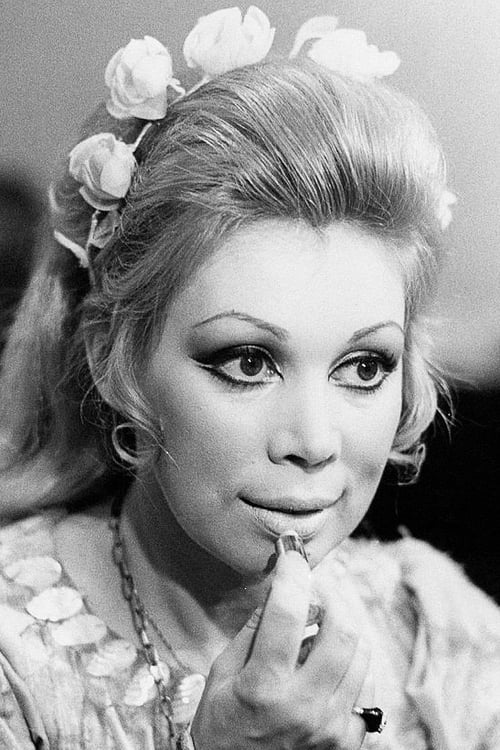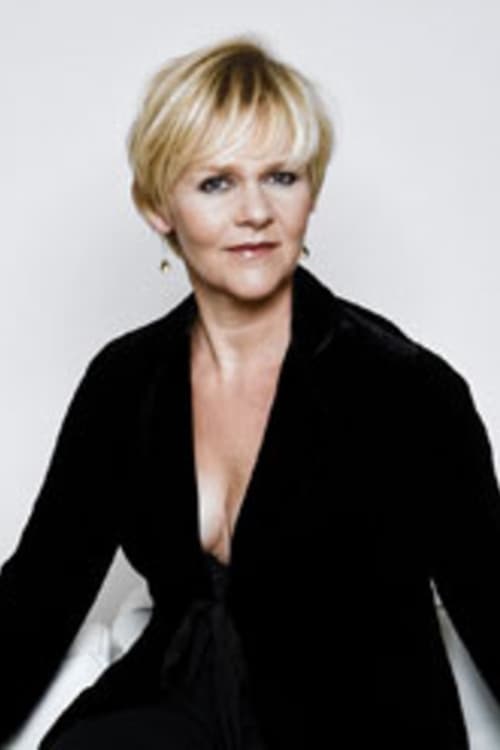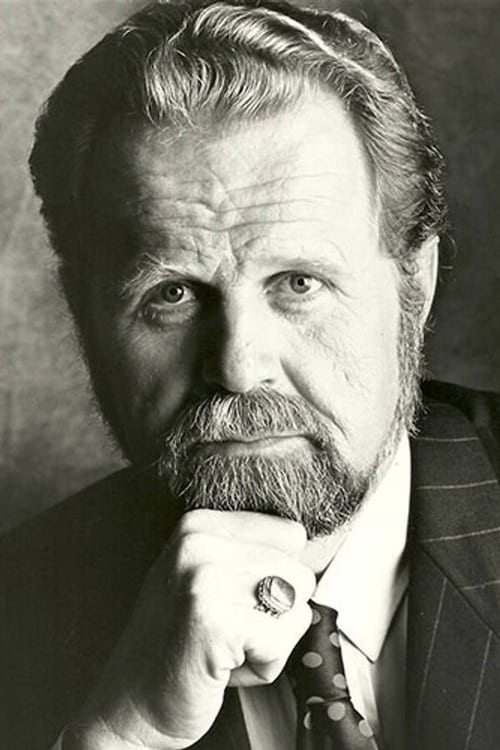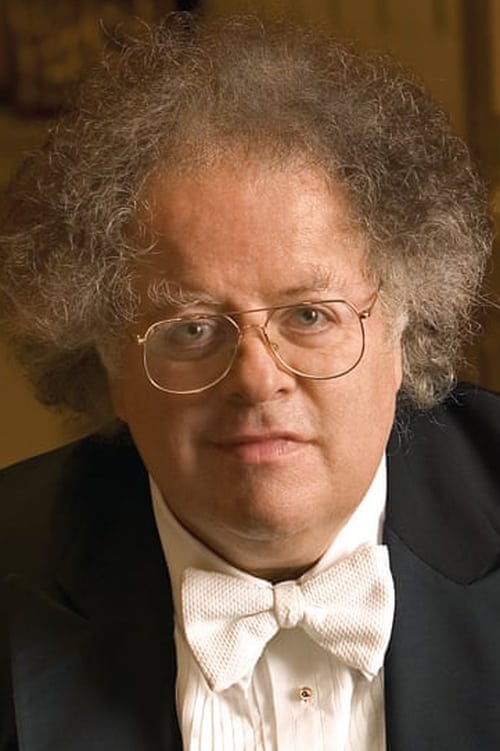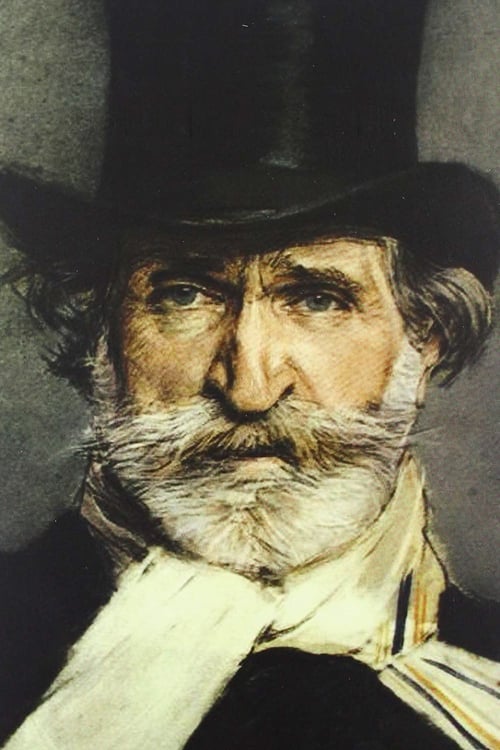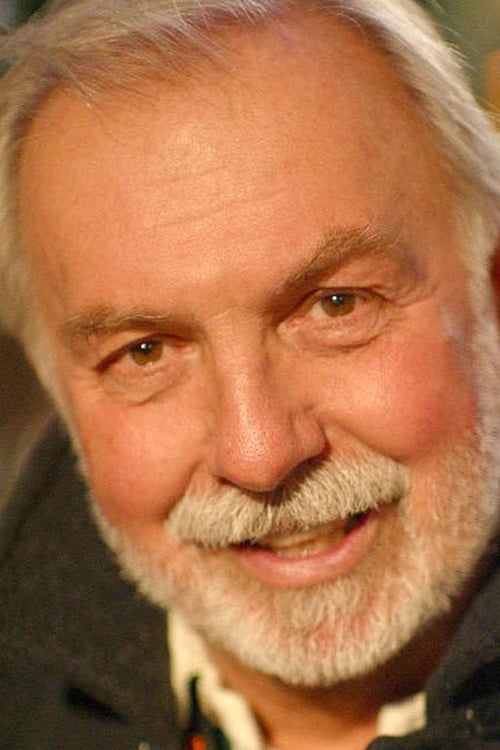Falstaff (1993)
Género : Música
Tiempo de ejecución : 2H 6M
Director : Franco Zeffirelli, Brian Large
Sinopsis
It is to composer and librettist Arrigo Boito and his constant pestering of the octogenarian Verdi that there remained within him one last great comedy fighting to get out that we owe this absolute miracle of an opera. Produced in 1893 as Verdi turned 80 there is much in this masterpiece that can be identified as a modernist neoclassical work. The use of short motifs instead of long arioso melodic lines, the spry and reduced orchestral textures and the lack of a single 'stand and deliver' dramatic declamatory aria all serve to make this more of a 20th century work than an example of 19th century late-Romanticism.
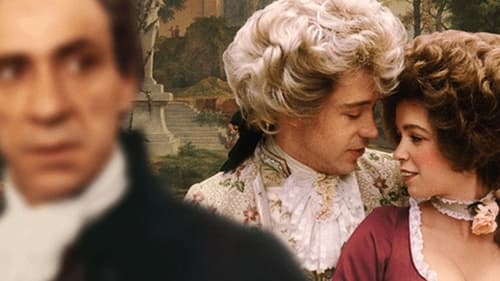
Antonio Salieri es el músico más destacado de la corte del Emperador José II de Austria. Entregado completamente a la música, le promete a Dios humildad y castidad si, a cambio, conserva sus extraordinarias dotes musicales. Pero, después de la llegada a la corte de un joven llamado Wolfang Amadeus Mozart, Salieri queda relegado a un segundo plano. Irritado por la pérdida de protagonismo, hará todo lo posible para arruinar la carrera del joven músico. Mientras tanto, Mozart, ajeno a las maquinaciones de Salieri, sorprende a todos con su genialidad como músico, pero también con sus excentricidades.
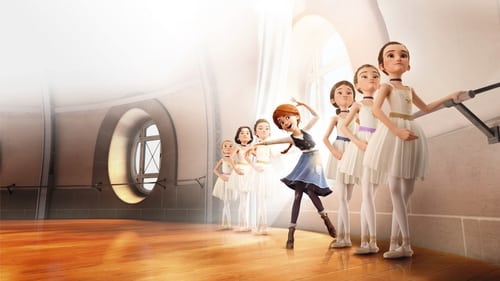
Felicia es una niña que, tras perder a sus padres, vive en un orfanato en su Bretaña natal. Su pasión es la danza y sueña con convertirse en una bailarina profesional. Para conseguirlo se escapa con la ayuda de su amigo Víctor y viaja hasta el París de 1879. Allí se hará pasar por otra persona para conseguir entrar como alumna de la Grand Opera House y así luchar por tener la vida que desea.
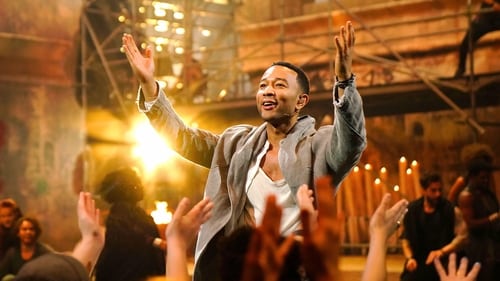
Un musical en vivo que narra los últimos días de Jesucristo y de quienes lo rodean.
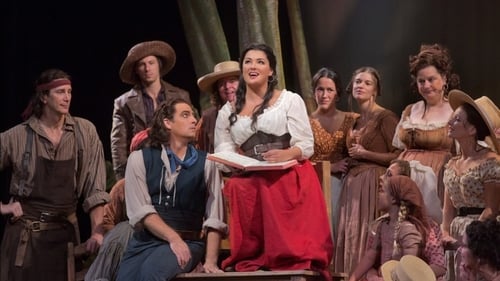
Anna Netrebko as the beautiful and wealthy Adina leads the cast in Barlett Sher’s production of Donizetti’s charming comedy, first seen on Opening Night of the Met’s 2012–13 season. Matthew Polenzani is Nemorino, the poor but good-hearted country boy who wins her love—with the help of the magic “elixir” sold by the quack Dulcamara, played by Ambrogio Maestri. Mariusz Kwiecien is the swaggering Sergeant Belcore and Maurizio Benini conducts.

Narra la historia real de Florence Foster Jenkins, una mujer que, al heredar la fortuna de su padre, pudo cumplir su sueño de estudiar para ser soprano. El problema era que carecía de talento, pero la gente acudía a sus recitales para comprobar si de verdad era tan mala cantante como decían los críticos.
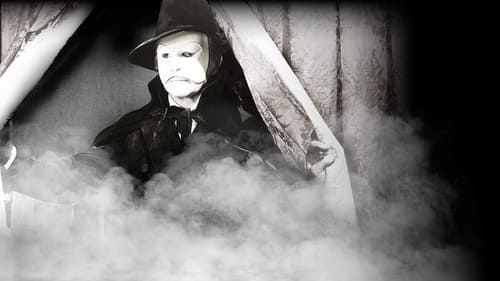
Un violinista de la Ópera de París, locamente enamorado de Christine Dubois, una joven aspirante a soprano, es despedido porque su mano izquierda ya no es tan hábil como antes. Solo y sin dinero, después de haberlo gastado todo en pagar -sin que ella lo sepa- las lecciones de canto de Christine, decide publicar un concierto con el fin de completar la instrucción de la soprano y de hacerse famoso. Pero, a causa de un malentendido, ataca a su editor, y la secretaria de éste le desfigura el rostro con ácido. Se refugia entonces en los sótanos de la Ópera y, desde entonces, actúa como un fantasma cuya sombra amenazadora acecha en la sombra y siembra el pánico entre el público.

Segunda Guerra Mundial (1939-1945). Parodia de la ocupación de Francia por los alemanes. Terry-Thomas es un piloto inglés que se encuentra perdido en la Francia ocupada, mientras que Bourvil y Louis de Funès son dos parisinos que, casi involuntariamente, ayudan a la resistencia contra los nazis. Un film que en Francia obtuvo un enorme éxito de taquilla.

Sir David McVicar’s bold new staging of Tosca, Puccini’s operatic thriller of Napoleonic Rome, thrilled Met audiences when it rang in the New Year in 2018. Only weeks later, the production was seen by opera lovers worldwide as part of the Met’s Live in HD series of cinema presentations. In this performance, Bulgarian soprano Sonya Yoncheva is the passionate title diva, opposite charismatic tenor Vittorio Grigolo as her lover, the idealistic painter Mario Cavaradossi. Baritone Željko Lučić is the menacing Baron Scarpia, the evil chief of police who employs brutal tactics to ensnare both criminals and sexual conquests. On the podium, Emmanuel Villaume conducts the electrifying score, which features some of Puccini’s most memorable melodies.
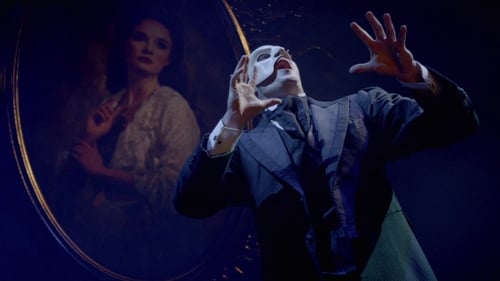
La excelencia compositiva de Andrew Lloyd Weber vuelve a deleitarnos con una nueva obra musical considerada la secuela de la célebre 'El fantasma de la ópera'. La hermosa y talentosa Christine Daaé y el misterioso enmascarado, se reencuentran.
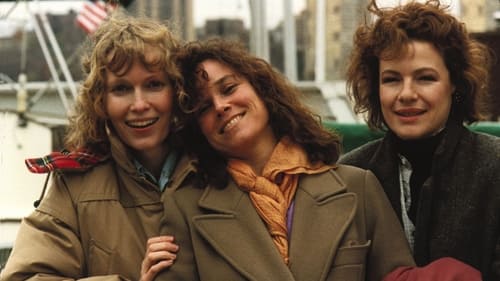
La hija mayor de una pareja de artistas, Hannah, es una esposa devota, madre cariñosa y actriz de éxito. Defensora leal de sus dos hermanas, Lee y Holly, es también la columna vertebral de una familia que parece casi tan resentida de su estabilidad como depende de ella. Pero cuando la rivalidad fraternal sabotea silenciosamente el mundo perfecto de Hannah, finalmente se da cuenta de que está tan perdida como todos los demás, y para ser capaz de encontrarse tendrá que elegir entre la independencia y... la familia sin la cual no puede vivir.
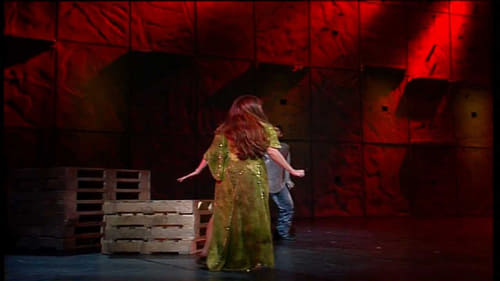
Adaptación musical de la novela de Victor Hugo "Notre Dame de París", que sigue a la bailarina gitana Esmeralda y a los tres hombres que compiten por su amor.
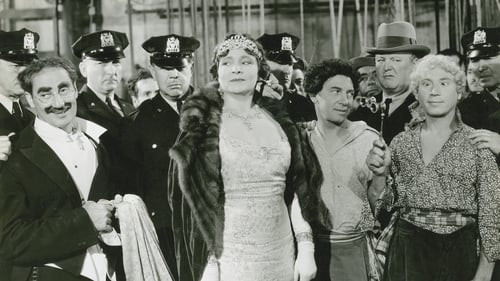
Los Hermanos Marx en la alta sociedad. A dos amantes que actúan en la ópera se les impide estar juntos porque no aceptan al hombre como tenor. Utilizando varios trucos típicos de los Hermanos Marx, logran que el tenor principal se ausente, y de esta manera el joven amante tendrá su oportunidad.
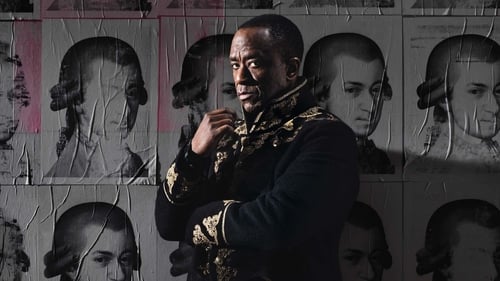
Wolfgang Amadeus Mozart, a rowdy young prodigy, arrives in Vienna, the music capital of the world – and he’s determined to make a splash. Awestruck by his genius, court composer Antonio Salieri has the power to promote his talent or destroy his name. Seized by obsessive jealousy he begins a war with Mozart, with music, and ultimately, with God.
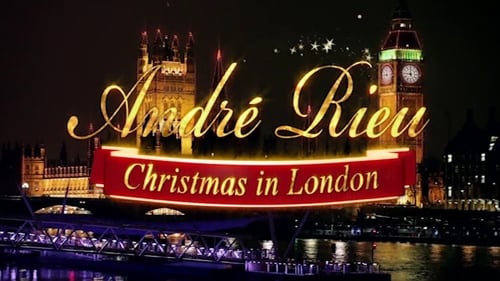
¡La Navidad es ahora más hermosa y acogedora que nunca! Vive la Navidad en Londres junto a André Rieu. Árboles de Navidad decorados por donde mires, calles bellamente iluminadas, tentadores escaparates navideños ... Combina el ambiente navideño único de Londres con un magnífico concierto navideño de André Rieu y tendrás todos los ingredientes para una fiesta encantadora en los oscuros días de diciembre. Junto a fantásticos solistas y su siempre alegre orquesta de Johann Strauss, André Rieu ofrece una velada fabulosa con los villancicos más bellos y conmovedores, pero también con canciones emotivas como Hallelujah, The Holy City de Leonard Cohen y el clásico Concierto de Aranjuez. Navidad en Londres significa una velada disfrutando de música encantadora, hermosos disfraces y mucha intimidad londinense.

In the depths of the Rhine, the three Rhinemaidens guard the Rhinegold, a treasure of immeasurable value. The Nibelung dwarf Alberich is dazzled by the sight of it. The girls explain that whoever wins the gold and forges it into a ring will gain power over the world, but must first renounce love. Frustrated by his unsuccessful attempts to catch one of the girls, Alberich curses love and steals the gold. Wotan, lord of the gods, is reproached by his wife Fricka: he has promised to give Freia, goddess of youth, to the giants Fasolt and Fafner in return for their building a fortress for the gods. When the giants demand their reward, Loge, the god of fire, suggests an alternative payment: the ring Alberich has forged from the Rhinegold, and his other treasures. The giants agree, and Wotan and Loge leave for the Nibelungs’ underground home.

La traviata (Italian: [la traˈviaːta], "The Fallen Woman"[1][2]) is an opera in three acts by Giuseppe Verdi set to an Italian libretto by Francesco Maria Piave. It is based on La dame aux Camélias (1852), a play adapted from the novel by Alexandre Dumas, fils. The opera was originally entitled Violetta, after the main character. It was first performed on 6 March 1853 at the La Fenice opera house in Venice. Piave and Verdi wanted to follow Dumas in giving the opera a contemporary setting, but the authorities at La Fenice insisted that it be set in the past, "c. 1700". It was not until the 1880s that the composer and librettist's original wishes were carried out and "realistic" productions were staged.[3]
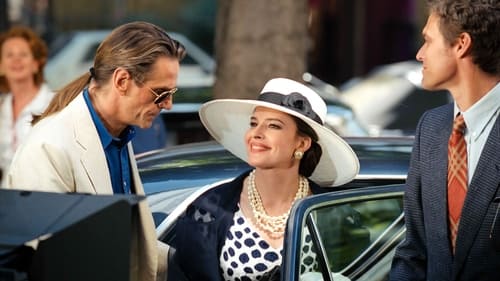
La cinta hace una invención de los últimos meses de la Gran Diva de la ópera,... retirada en su apartamento de Paris, hasta que un representante musical: Larry Nelly (Jeremy Irons) con el que antaño había trabajado, le propone una nueva aparición estelar. Franco Zeffirelli recrea un ambiente en el que Fanny Ardant demuestra su calidad interpretativa, rodeada de jóvenes como Jay Rodan y el modelo Gabriel Garko muy del estilo Pasolini.
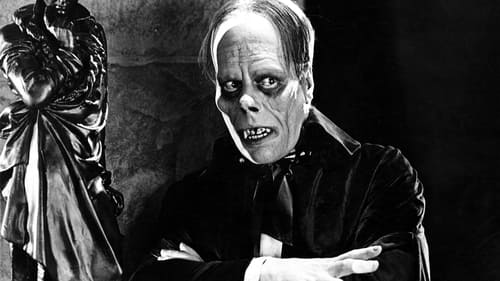
En los sótanos de la Ópera de París vive oculto el misterioso Eric, el hombre de voz de ángel y rostro desfigurado de demonio, que acecha entre pared y pared a la hermosa soprano Christine Daeé, a la que desea catapultar hasta la cima de la fama; pero cuando se entera de que la cantante está prometida al apuesto vizconde Raoul, se vuelve loco de celos.

Philip Glass’ opera “Akhnaten”, premiered in Stuttgart in 1984, forms the third part of the portrait opera trilogy about personalities who have influenced the course of human history. The conclusion of the trilogy deals with the ancient Egyptian pharaoh Akhenaten, who attempted to establish a kind of monotheistic cult around the god Aton during his reign in the 14th century BC, but failed due to the resistance of the priesthood. The production presented here was undoubtedly one of the very great successes of the 2019/20 season at New York’s Metropolitan Opera, due not only to the outstanding cast of singers (led by countertenor Anthony Roth Costanzo) but also to Phelim McDermott’s imaginative staging, which captivates with sometimes breathtaking imagery.

Bugs está en resistencia como la valquiria Brunhilde que se sienta en un caballo con sobrepeso. "Ella" es perseguida por Elmer interpretando al semidiós "Siegfried".
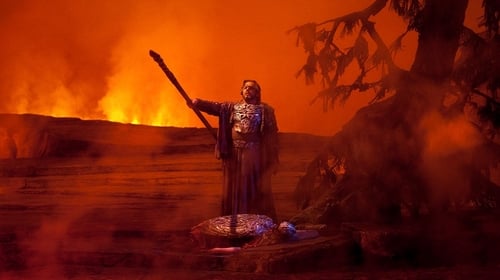
The gorgeous and evocative Otto Schenk/Günther Schneider-Siemssen production continues with this second opera in Wagner’s Ring cycle. Hildegard Behrens brings deep empathy to Brünnhilde, the favorite daughter of the god Wotan (James Morris) who nevertheless defies him. Morris’s portrayal of Wotan is deservedly legendary, as is Christa Ludwig, as Fricka. Jessye Norman and Gary Lakes are Sieglinde and Siegmund, and Kurt Moll is the threatening Hunding. James Levine and the Met orchestra provide astonishing color and drama. (Performed April 8, 1989)

Natalie Dessay and Rolando Villazón bring Jules Massenet's classic opera to the stage in this dazzling production. In 18th-century France, Manon (Dessay) faces life as a nun, despite catching the eye of many men. When she meets the handsome but penniless des Grieux (Villazón), she falls deeply in love. The pair elopes, but their future together is threatened by outside forces.

Beginning with the First Symphony, Bernstein reveals Mahler's position at the hinge of modernism, while emphasizing his emotional extremism. The uplifting Second "Resurrection" Symphony, with which Bernstein had an especially long and close association, is recorded here in a historic performance from 1973, set in the Romanesque splendor of Ely Cathedral. In the Third, Bernstein encompasses the symphony's spiritual panorama like no other conductor, with the Vienna Philharmonic players alive to every nuance.
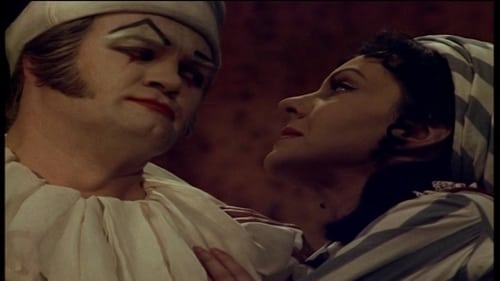
Opera's most popular double bill, fondly known as Cav and Pag, can be a tawdry mess or, as in this performance of Pagliacci, a searing experience. Its power derives from an all-star cast headed by tenor Jon Vickers in the double role of betrayed husband, Canio, and tragic clown, Pagliacci. Hes a singer who blurred the division between reality and stage illusion in every role he assumed, thus taking an opera about that thin line between real life and stage artifice to heightened levels of intensity. Vickers is a force of nature, his big, brawny voice suffused with emotion. Here, his phrasing, textual precision, and timbral colorations expand the scope of the opera, making a moving tragedy out of Leoncavallos verismo melodrama.

Although Domingo was younger and Banackova looked more like the sweet and innocent young Madalena than the one played by Tomowa-Sintow in the ROH production, this production was not as good. It was not as tight and neat. The tempo set was far too slow for the time-period of the story. The stage setting was distracting. The lighting was too dark. Except Domingo, a natural actor who was always into his role and sings and acts with passion, none of the other performers came up with a convincing portrayal of the role he/she played.

Filmed on tour at Berlin's Philharmonie, this account of the valedictory Ninth Symphony is an intense interpretation, expressing Bernstein's conviction that modern man had at last caught up with the message encoded in Mahler's last completed work. Having made his famous 1966 studio recording of "Das Lied von der Erde" in Vienna, Bernstein re-recorded this in Israel with the same searing subjectivity. René Kollo draws on the voice of a great Wagner tenor, while Christa Ludwig, the greatest exponent of the contralto songs at the time, is unbearably poignant in the final movement's fusion of elation and sadness.

This set has Edita Gruberova singing in top form, all her scooping cast aside, which one finds in abundance in her Lucia under Richard Bonynge. Here, however, she makes ravishing use of those bits of tone that only she can produce: those instances of coloratura and dramatic legato with little asides and small florishes of style that suggest her intelligent approach and her high degree of musical involvement in this role. She does this in her I Puritani and her Anna Bolena, less so in Roberto Deveraux and Maria Stuarda(both sets). Listen to Addio del passato and the Sempre Libra...ravishing, yes, but there are again those nuances learned from Callas that she makes her own. A very singualr perform,ance, and extremely moving with its detail and cry for pity throughout..from the start even. Neil Schicoff is excellent, not an unworthy Alfredo at all! His is a great lyric tenor voice that should have been in the top line.

"Four Ways to Say Farewell" is a personal introduction to Mahler and his Ninth Symphony, during which Leonard Bernstein is seen and heard rehearsing the Vienna Philharmonic Orchestra. Filmed in 1971, this rehearsal was directed by Humphrey Burton,

From the gorgeous scene deep in the river Rhine that opens the opera, up to the magic Rainbow Bridge that appears at the end, leading to a glistening Valhalla, Otto Schenk’s production captures the scenic world of Wagner’s Ring as brilliantly as James Levine and the Met orchestra capture the musical world. The cast is incomporable: an astounding James Morris as the young god Wotan, the great Christa Ludwig as his wife Fricka, incandescent Siegfried Jerusalem as Loge, the wily god of fire, and Ekkehard Wlaschiha as a complex Alberich.

The gypsy Azucena (Fiorenza Cossotto) takes revenge for her mother who was accused of putting a curse on one of the old Count di Luna's two sons: she decides to abduct the younger child and throw it in the flames. But when she is about to carry out this fatal act, the gypsy sacrifices her own child and keeps the old Count’s son, whom she names Manrico (IL TROVATORE, Plácido Domingo). Later, as adults, the troubadour Manrico and the Count di Luna’s elder son (Piero Cappucilli) do not know each other, but become rivals for the beautiful Leonora (Raina Kabaivanska). Manrico succeeds in winning the young woman’s heart, and she sacrifices herself for him, deceiving the Count’s son. Mad with jealousy, the latter orders the execution of the troubadour in front of his mother. Azucena reveals to him that Manrico was his brother. This legendary performance of Giuseppe Verdi's most successful opera was recorded at the Vienna State Opera under the baton of Herbert von Karajan.

Opera royalty Luciano Pavarotti brings dignity and power to the title role in this 1982 production. During a squall at sea, Idomeneo -- the king of Crete -- swears to Neptune that if the monarch survives, he'll sacrifice the first person he encounters onshore. Tragically, that person ends up being his son, Idamante (Frederica Von Stade). Maestro James Levine masterfully conducts the orchestra and chorus of the Metropolitan Opera. A musical production that was designed for the "Live From the Met" series, this program was produced by Jean-Pierre Ponnelle.

This television essay from 1985 was written by Leonard Bernstein to commemorate the 125th anniversary of Gustav Mahler's birth. Recorded in Israel, Vienna and later in London, it is punctuated by biographical interludes and illustrated by musical examples drawn from the cycle of Mahler's works recorded by Bernstein. Bernstein talks, plays and conducts various orchestras (Israel Philharmonic Orchestra, London Philharmonic Orchestra, Wiener Philharmoniker) and soloists (Janet Baker, Christa Ludwig, Edith Mathis, Lucia Popp, Walton Groenroos) in performances spanning 17 years. Leonard Bernstein also examines the roots of Gustav Mahler's inspiration. The programme also features music from the nine symphonies, 'The Song of the Earth' and the 'Wunderhorn Cycle'.

There are only a couple of DVD recordings of Mozart's Symphony No. 40. Fortunately, this one by Karl Bohm, recorded live in Vienna's Musikvereinssaal, is excellent, as are the other Mozart symphonies on this DVD. Since this disc offers three of the big six last symphonies of Mozart, Nos. 35 (Haffner), 40, and 41 (Jupiter), plus two more, it is an outstanding value. Despite the age of the recordings (1973-74), both the sound and the video are quite good.

Both Florez and Diana Damrau brought their bel canto expertise and superb vocalism to the service of Verdi's music. The Rigoletto, Zeljko Lucic, ran the gamut from tenderness with his Gilda to thundering fury with everyone else. I also liked the production. At first, when Rigoletto was putting on his grease paint during the overture, I was afraid that it might be a typical "Euro-trash" production, with a bit of warmed over I Pagliacci. But the sets and dramatic action really served the music and libretto. I would have to say that I came to a deeper understanding and appreciation of the story and characters as a result of seeing this performance.

Emmanuelle Haïm has established herself as one of the world’s leading performers, conductors and interpreters of Baroque repertoire, not only with Le Concert d’Astrée, the ensemble she founded in 2000, but with several of the world’s greatest orchestras. Known for her fresh and expressive approach to Baroque music, she has garnered critical acclaim and several international awards with her own ensemble, including Victoires de la Musique Classique, ECHOs, Gramophone Awards, and Grammy nominations.

Philippe Jaroussky as Ruggiero is in thrall to Patricia Petibon as the sorceress Alcina in Katie Mitchell’s virtuosic production of Handel’s opera from the 2015 Aix-en-Provence Festival, described by Bachtrack as “a night of a thousand delights”. Conducted by Andrea Marcon, this was, in the words of Opera News, “musically … a performance of the highest festival level”. The production of Alcina, by the British director Katie Mitchell, was welcomed by the Financial Times as “meticulously executed …, rich in detail, consummately polished”. As the New York Times wrote: “It involves a huge sorcery machine for turning people into animals (or whatever). And Ms. Mitchell works magic of her own onstage, constantly showing the enchantresses Alcina and Morgana alternating between glamorous public personas and their ‘real life’, older, private selves …There are also bits of simulated sex, mingling genders and suggesting, among other things, inventive new ways to hit high notes.”

Herbert von Karajan conducts La Scala Orchestra and Chorus with soloists Leontyne Price, Fiorenza Cossotto, Luciano Pavarotti, and Nicolai Ghiaurov.

Charles Mackerras teases the romantic beauty from Gounod's score, which has been widely admired since its first performance at the Théâtre Lyrique, Paris, in 1867. In this 1994 recording, the youthful Roberto Alagna as Roméo and Leontina Vaduva as the unattainable Juliette lead an excellent cast in this touching portrayal of impossible love, based on Shakespeare's play.

I due Foscari was Verdi's sixth opera and based on Lord Byron's play The Two Foscari. Rich in intrigue, the plot tells of the final days of the famous Venetian doge, Francesco Foscari, and his illegal overthrow in 1457.
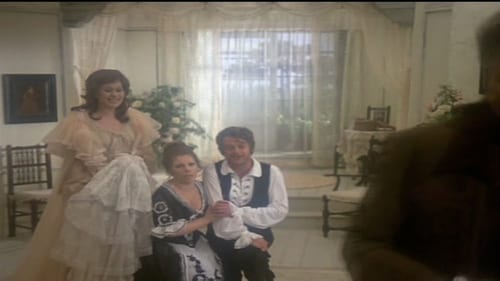
Mozart's Marriage of Figaro is a comedy whose dark undertones explore the blurred boundaries between dying feudalism and emerging Enlightenment. Herman Prey's Figaro is admirably sung in a firm baritone and aptly characterized. So too, is his antagonist, Dietrich Fischer-Dieskau as the Count perpetually frustrated by the scheming wiles of Figaro and Susanna, here the perky Mirella Freni, who sings and acts like a dream. The Countess is creamy-voiced Kiri Te Kanawa, and the Cherubino, Maria Ewing, looks just like the horny, teenaged page she's supposed to be. The all-star leads are complemented by worthy supporting singers, the Vienna Philharmonic at the top of its form, and the experienced Mozartian, Karl Böhm conducting a stylishly fleet performance.

